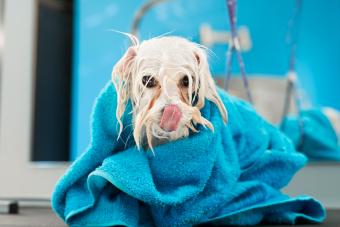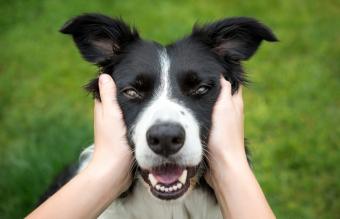
The Bolognese dog is similar to the Bichon frise, yet this breed originated in Italy. This small dog is intelligent, curious, and playful. Bolognese dogs are also affectionate and form strong bonds with family members.
Bolognese Dog Breed Overview
Dog lovers need to research this breed before bringing him home. The Bolognese is also part of the Bichon frise family and a cousin to the Maltese. He's known to be shyer and more reserved than the popular, easy-going Bichon. This dog's non-shedding coat makes him popular with pet parents.
Origin and History
The Bolognese originates from Bologna, Italy, and descends from the Barbet breed. Italian nobility loved this little dog and gave him to friends as gifts. Many of the Bolognese dogs are in 16th-century Italian paintings.
Similar to the Bichon Frise
The Bolognese is a wonderful candidate for any pet parents living in an apartment. This small breed is affectionate with his family and develops a bond with one special person. Similar to the Bichon, the dog rarely sheds.

Temperament
The breed is intelligent and playful. Bolognese pups are also good with family and older children. If you live with other dogs, this breed is also a great companion for a buddy. He may be prone to barking, but pet parents may easily manage this behavior with some training.
Appearance
Similar to the Bichon frise, the Bolognese has a non-shedding coat.
- Size: This small breed is between 10 and 12 inches.
- Weight: This breed weighs between seven and nine pounds.
- One coat color: The coat is only available in white.
Grooming
Dog lovers need to prepare to groom this beautiful toy breed and companion animal. The dog's long, white and wavy hair does not include an undercoat. The coat is a woolly texture that needs regular brushing a minimum of four times a week. Professional groomers recommend a soft pin brush and wide comb.

Exercise
The Bolognese may bark if he becomes bored. Always provide at least one daily walk for your small breed and puzzle toys to keep his mind active.
Health Issues
The breed is prone to orthopedic issues. There are a few primary health conditions pet parents need to know.
- Hip dysplasia
- Ear infections
- Profuse hair in the ear canal
Best Diet for Small Breeds
There are many diets specially formulated for smaller breeds. The Bolognese dog breed needs high-quality food to make sure he does not gain weight. Small breeds may become obese, and regular vet appointments are essential so you can get a weight.
Bolognese Dog Full Grown
The Bolognese's life expectancy is over 12 years! Taking your adult and small senior breed to the vet twice a year is vital to ensure your dog lives a healthy, long life as dogs' age pet parents need to be vigilant about any behavior changes. For example, if your buddy stops eating or favors his back leg, your vet may diagnose dental disease or arthritis.

About the Toy Group
Many companion dogs are bred solely as pets. The Bolognese, Maltese, and Bichon frise are small breeds in the Toy group designed to be excellent family pets. Dog breeds in this group are friendly and adaptable to a wide range of lifestyles.
Work With a Reputable Breeder
The United Kennel Club or UKC may be an excellent resource for pet parents when you start to look for a breeder. If pet parents struggle to identify a breeder or breed rescue, look for a Bichon frise breeder as they may answer relevant questions.
Bolognese Is Similar to the Bichon Frise
The Bolognese forms a close relationship with his owner or special person. This breed requires regular brushing and exercise. Overall, this small dog is generally healthy and may enjoy life with pet parents living in a smaller apartment.







